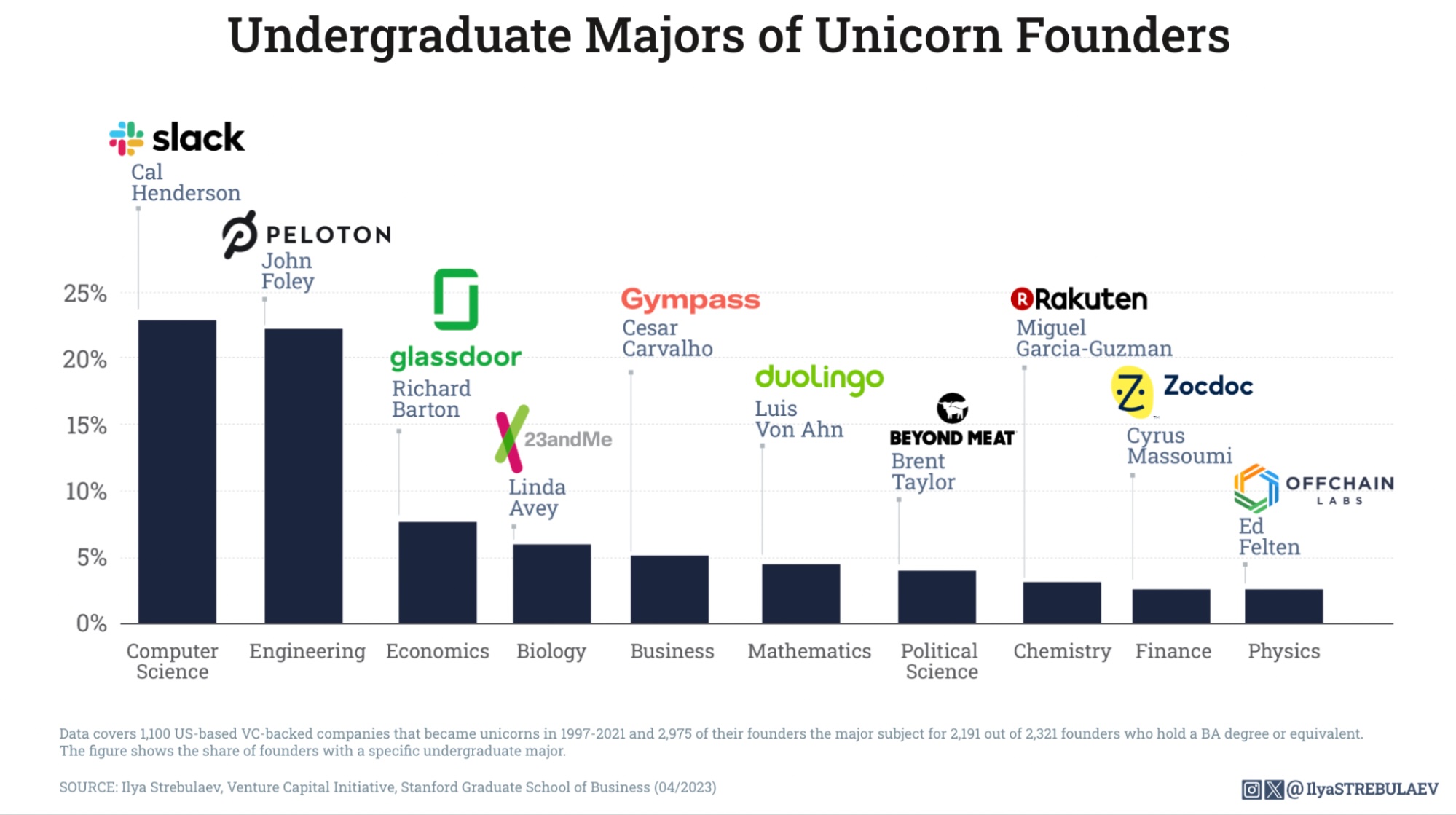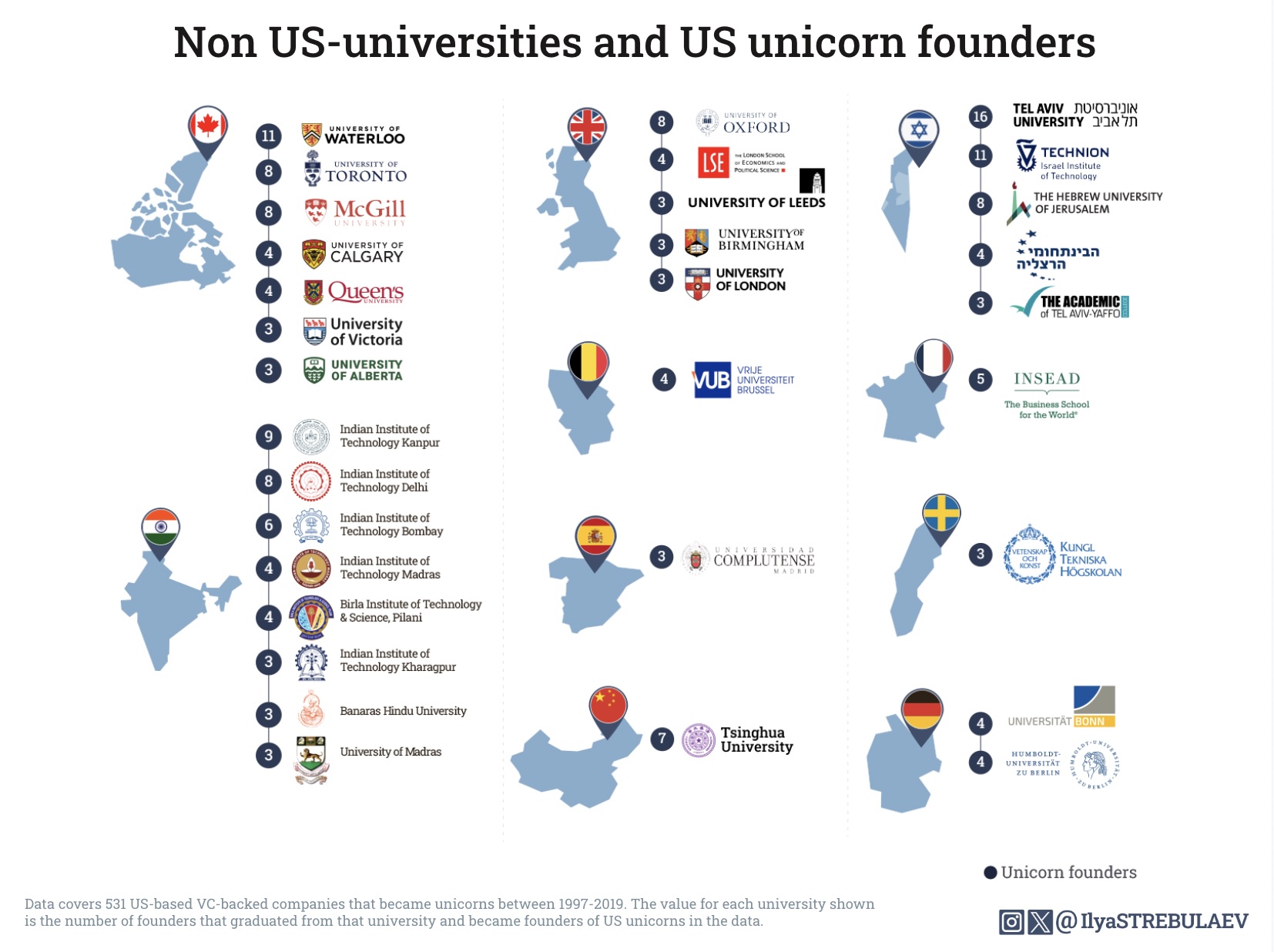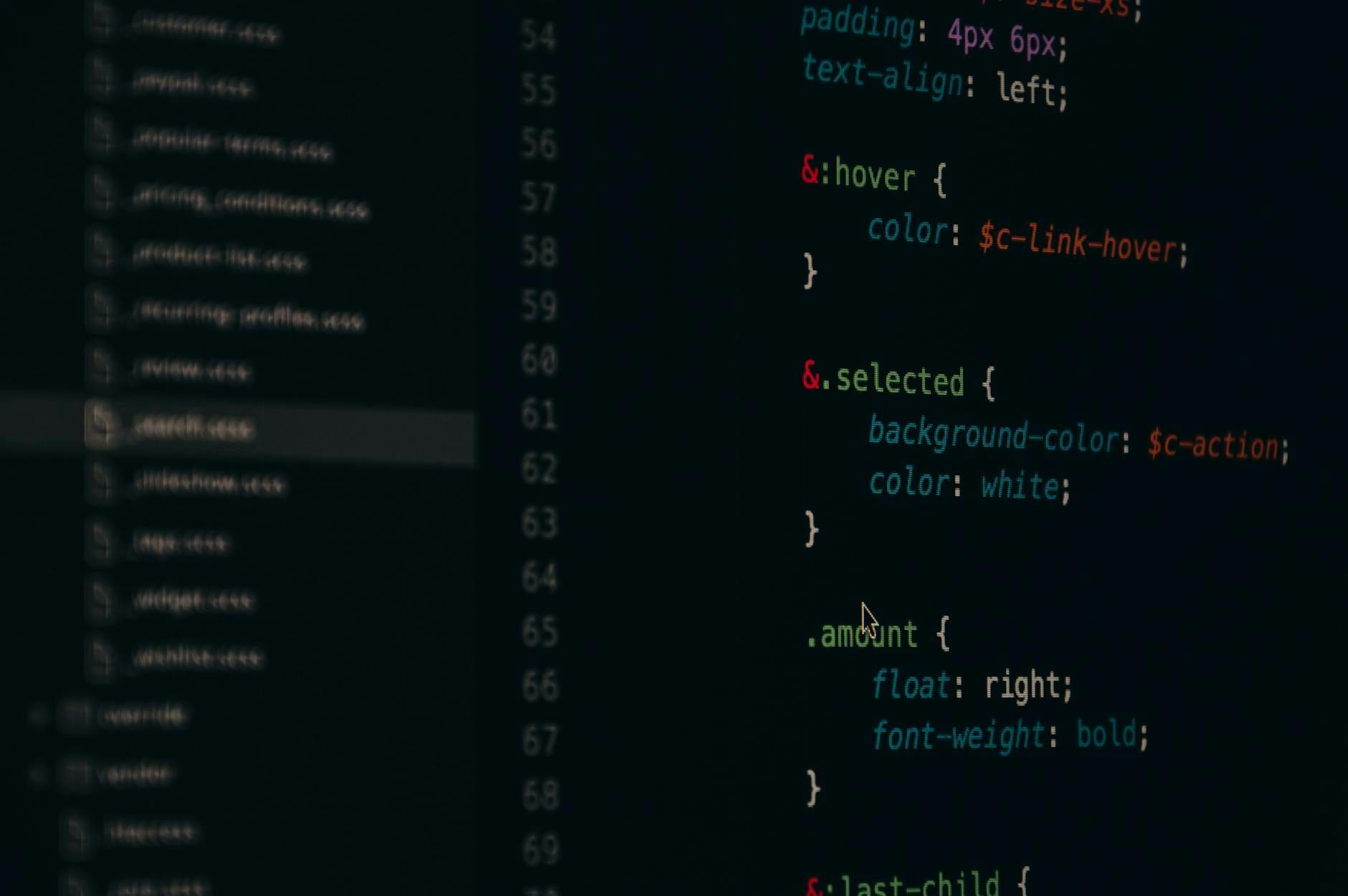Between the myth of the brilliant college dropout and the reality of founder education patterns, what does the data actually tell us? Stanford Venture Capital Initiative’s team and I researched the educational backgrounds of founders from more than 1,000 U.S. venture-backed companies that achieved unicorn status, and the findings challenge popular narratives.
While stories of dropouts-turned-billionaires — like Bill Gates, who left Harvard in his sophomore year to found Microsoft — capture the public imagination, our data reveals that unicorn founders are significantly more educated than the general population. They are 6x more likely to hold a doctoral degree, 3x more likely to have a master’s degree, and twice as likely to have completed undergraduate studies compared to the average U.S. person over 25 years old.

Chart source: https://www.linkedin.com/in/ilyavcandpe/
When it comes to higher education institutions, Stanford, MIT and Harvard consistently lead in producing unicorn founders. For undergraduate degrees, Stanford tops the list with 122 founders, followed by MIT with 87, and Harvard with 73. Berkeley, Yale and Cornell complete the top tier, with 60, 45 and 45 founders, respectively. (The table compares our ranking based on numbers of unicorn founders who pursued undergraduate degrees at these colleges with the 2025 ranking by U.S. News.)


These numbers tell only part of the story. Another important statistic is the “unicorn production rate.” Some unexpected leaders emerge here: the University of Cincinnati‘s graduates, for example, are 3.3x more likely to found a unicorn than average, while University of Utah follows closely at 3.2x. (The way to think about these ratios is as follows: By how much does your chance of becoming a unicorn founder go up if you graduate from this university and found a venture-backed company?)


The choice of major shows clear patterns as well. Computer science dominates with more than 500 founders, while engineering follows closely behind. Economics ranks third. Together, these three fields account for 53% of all unicorn founders.


However, the diversity of backgrounds is remarkable — at least 47 different majors are represented, including some perhaps unexpected fields such as theology, philosophy and anthropology.


The global nature of unicorn creation is also evident in our data. Among 531 U.S. unicorns studied, 266 founders (21%) completed their education outside the United States. Tel Aviv University leads international institutions with 16 unicorn founders, while the University of Waterloo and Technion follow with 11 each.


Contrary to common perception, the type of institution — public or private — doesn’t significantly impact unicorn-founding odds. Private and public universities have nearly identical “unicorn production rates” when accounting for their graduate population sizes.
What matters more than the type of institution is the depth of education itself: the typical unicorn founder is highly educated. Consider Moderna‘s Noubar Afeyan (Ph.D. in biochemical engineering from MIT), Lyra’s Dena Bravata (M.D. from Columbia) or Google‘s Sergey Brin and Larry Page (both Ph.D. dropouts from Stanford’s computer science program). All these founders leveraged their advanced education to tackle complex technological challenges.
Yet the landscape of learning is evolving. While formal education remains a strong predictor of unicorn success, the democratization of knowledge has created new paths to developing deep expertise.
Still, the data suggests that building successful companies of the future often benefits from the knowledge, research mindset and specialized networks developed through formal education. The dropout-to-billionaire path, while possible, remains a captivating outlier rather than a reliable template for entrepreneurial success.
Ilya Strebulaev is the foremost academic expert on venture capital. As the founder of the Venture Capital Initiative and a professor of private equity and finance at Stanford University’s Graduate School of Business, where he teaches a popular class on venture capital, his research has been widely published in leading academic journals and featured in The Wall Street Journal, The New York Times, Bloomberg and the Harvard Business Review. He frequently leads workshops and executive sessions for senior business and government leaders around the world and has consulted for companies and investors on the venture industry trends and corporate innovation. In 2023 he was named a Top Voice on LinkedIn. (https://www.linkedin.com/in/ilyavcandpe/).
Note on methodology and sources
For this study, we define unicorns as VC-backed, U.S.-based companies that achieved a confirmed $1 billion-plus post-money valuation in a primary private round or had a liquidity event (such as an IPO or an acquisition) at a confirmed $1 billion-plus valuation between 1997 and 2021. To construct our unicorn list, we started with “unicorn candidates” from well-known sources such as Crunchbase and TechCrunch, as well as from datasets that report private funding round and liquidity event details, such as Crunchbase, PitchBook and VentureSource. We then manually confirmed and cross-checked the location and funding details to decide on the inclusion of each company in our final unicorn list. This process resulted in a total of 1,110 unicorns. For each unicorn we also identified a peer U.S.-based VC-backed company that raised its first venture round in the same year. We call the sample of such peers a random sample. For each of the companies in the unicorn and random samples we identified founders and co-founders (we use “founder” and “co-founder” interchangeably) from all the sources mentioned above, LinkedIn, public filings, and many others. In total, we identified and confirmed 4,975 founders (different data exercises may use subsamples of this data).
Illustration: Li-Anne Dias


Stay up to date with recent funding rounds, acquisitions, and more with the
Crunchbase Daily.








